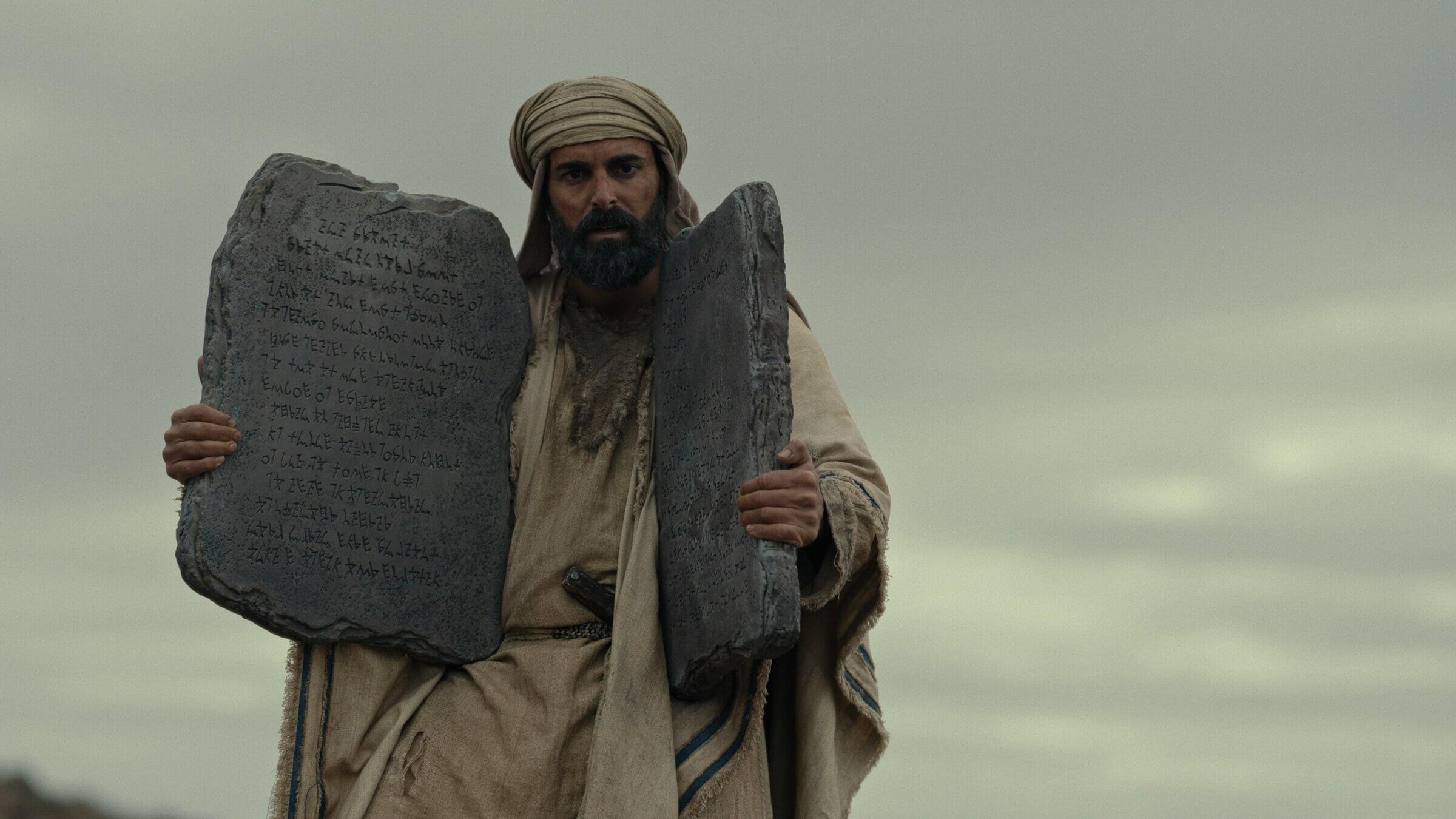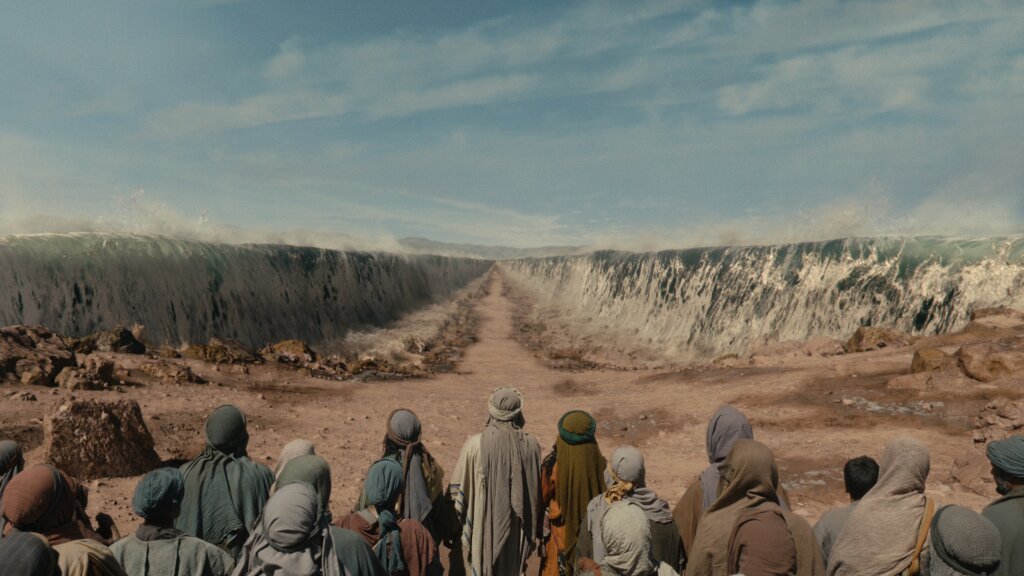Why is Netflix’s No. 1 new show a documentary about Moses?
Christians, Muslims and Jews walk into Netflix’s new Moses docuseries, featuring smart talking heads and hokey reenactments

Moses is also young, not grey-bearded, to make him hip and relevant I guess. Courtesy of Netflix
By all measures, religion is on the decline in the U.S. Which is why I found it surprising that, for the past week, a docuseries called Testament: The Story of Moses was in the No. 1 spot on Netflix.
Perhaps that’s because it premiered in the week leading up to Easter, putting it a few weeks before Passover. Still, the series mixes rather clunky dramatic reenactments of the story of Exodus with commentary from a range of talking heads — not something that holds obvious appeal for the Netflix audience.
Last year, the streaming site finally released a compendium of viewer data that showed its most-watched list is largely soapy dramas, crime series and a rash of reality TV shows — Love is Blind, The Ultimatum, Too Hot to Handle — that each compete to be trashier than the one before.
Testament, on the other hand, is neither splashy nor trashy. There’s no sex appeal. Its reenactments are heavy-handed and didactic — trying far too transparently to make the biblical story of Moses inspirational and compelling. (“Social justice began with Moses!” a rabbi says at one point, before a pastor compares him to Martin Luther King Jr.) The entire show is basically asking to be roasted online.

The clumsy reenactments and a few too-on-the-nose moments bely the fact that most of the commentary is actually sharp — and deeply Talmudic. Though the talking heads come from all three Abrahamic traditions and producer Kelly McPherson came from a Baptist church, the way the show’s experts speak about the Exodus story often feels deeply Jewish.
They reference midrash extensively. They do grammatical analysis and break down Hebrew word roots. At one point, commentators discuss the fact that the word for the basket Moses floats down the Nile in is the same as the word for Noah’s ark. At another point, Rabbi Rachel Adelman, a professor at Hebrew College, excitedly exclaims, “God is a verb!” as though that, in and of itself, has obvious deep meaning to the average Netflix viewer.
The commentary is also surprisingly edgy for a show that seems to largely exist as a way to attract people back to the bible. Peter Enns, a professor of biblical studies at Eastern University, examines the difference between monotheism and “monolatry,” pointing out that the bible never actually says that the god of Moses is the only god that exists, only that Moses’ god is the only one the Israelites should worship. In fact, several commentators argue, the entire tale is less a battle between Moses and Pharaoh than between the Egyptian Gods and the Israelite one — implying that both existed.
It’s notable that the analyses at times contradict the thrust of the dramatic reenactment portions. While commentators debate the meaning or historical roots of the plagues, the booming voice of god by way of Charles Dance does not leave much room for ambiguity as it tells viewers that God brought each plague. The show seems to be trying to split the difference between appealing to a religious crowd that wants a by-the-book biblical drama and bringing in a more secular crowd hoping for some new depth.
But a religious crowd might be angered by some of the more provocative questions posed by the talking heads if they came to the show looking for something akin to The Chosen, the hit Christian TV show about Jesus and his followers, as one review urged them to (“Netflix Moses documentary is a must-watch for The Chosen fans”). That’s probably why the show opens with a disclaimer that the experts’ views are meant to “enrich the narrative but should not be understood as consensus.”
Of course, anyone who is drawn in by these academic dissections of the biblical text were likely already invested in the story of Moses; it’s hard to imagine someone without preexisting interest logging into Netflix only to scroll past Love is Blind and Bridgerton, and stop at Testament: The Story of Moses.
It seems unlikely that Testament will sway any hearts and minds. But it might convince a few people to try out a little Talmud, or dig into some academic textual analysis. And as a religious studies nerd, that’s a win in my book.
















